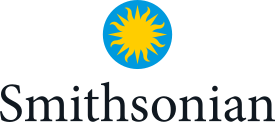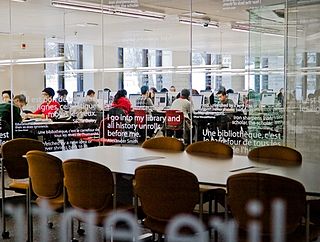
The Library of Congress National Digital Library Program (NDLP) is assembling a digital library of reproductions of primary source materials to support the study of the history and culture of the United States. Begun in 1995 after a five-year pilot project, the program began digitizing selected collections of Library of Congress archival materials that chronicle the nation's rich cultural heritage. In order to reproduce collections of books, pamphlets, motion pictures, manuscripts and sound recordings, the Library has created a wide array of digital entities: bitonal document images, grayscale and color pictorial images, digital video and audio, and searchable e-texts. To provide access to the reproductions, the project developed a range of descriptive elements: bibliographic records, finding aids, and introductory texts and programs, as well as indexing the full texts for certain types of content.

Canadiana is a class of books that includes Canadian literature, books about Canada as well as Canadian non-fiction works. The term is very general for it can include books which do not deal with Canada or Canadians but which were written by Canadians or people who were Canadians at one point in their life. It is a category often seen in bookstores and in research libraries. One of the specific mandates of the Library and Archives Canada is to collect, organize and make available Canadiana.

Library and Archives Canada is a federal institution tasked with acquiring, preserving and making Canada's documentary heritage accessible. It is the fourth-largest library in the world. LAC reports to Parliament through Steven Guilbeault, the Minister of Canadian Heritage since November 20, 2019.

Toronto Public Library (TPL) is a public library system in Toronto, Ontario. It is the largest public library system in Canada and in 2008, had averaged a higher circulation per capita than any other public library system internationally, making it the largest neighbourhood-based library system in the world. Within North America, it also had the highest circulation and visitors when compared to other large urban systems. Established as the library of the Mechanics' Institute in 1830, the Toronto Public Library now consists of 100 branch libraries and has over 12 million items in its collection.

The European Library is an Internet service that allows access to the resources of 49 European national libraries and an increasing number of research libraries. Searching is free and delivers metadata records as well as digital objects, mostly free of charge. The objects come from institutions located in countries which are members of the Council of Europe and range from catalogue records to full-text books, magazines, journals and audio recordings. Over 200 million records are searchable, including 24 million pages of full-text content and more than 7 million digital objects. Thirty five different languages are represented among the searchable objects.
The following outline is provided as an overview of and topical guide to library science:

The Delineator was an American women's magazine of the late 19th and early 20th centuries, founded by the Butterick Publishing Company in 1869 under the name The Metropolitan Monthly. Its name was changed in 1875. The magazine was published on a monthly basis in New York City. In November 1926, under the editorship of Mrs. William Brown Meloney, it absorbed The Designer, founded in 1887 and published by the Standard Fashion Company, a Butterick subsidiary.

Family History Centers (FHCs) are branches of the Family History Library in Salt Lake City Utah operated by The Church of Jesus Christ of Latter-day Saints. The centers supply resources for research and study of genealogy and family history. As of 2020, there are more than 5,100 FHCs in 145 countries.
A digital library, digital repository, or digital collection, is an online database of digital objects that can include text, still images, audio, video, digital documents, or other digital media formats. Objects can consist of digitized content like print or photographs, as well as originally produced digital content like word processor files or social media posts. In addition to storing content, digital libraries provide means for organizing, searching, and retrieving the content contained in the collection.

Europeana is a web portal created by the European Union containing digitalised museum collections of more than 3,000 institutions across Europe. It includes records of over 10 million cultural and scientific artefacts, brought together on a single platform and presented in a variety of ways relevant to modern users. The prototype for Europeana was the European Digital Library Network (EDLnet), launched in 2008.

Digital Maryland, formerly Maryland Digital Cultural Heritage (MDCH), is a collaborative, statewide digitization program. Headquartered at the Enoch Pratt Free Library/State Library Resource Center in Baltimore, the program partners with Maryland libraries, archives, historical societies, museums, and other institutions to digitize and provide free online access to materials relating to the state's history and culture. Materials in Digital Maryland's online digital collections include maps, manuscripts, photographs, artwork, books, and other media.

Smithsonian Libraries (SIL), formerly known as Smithsonian Institution Libraries, is a library system comprising 20 branch libraries serving the various Smithsonian Institution museums and research centers, as well as central support services which include a Book Conservation Laboratory and an Imaging Center. The Libraries serve Smithsonian Institution staff as well as the scholarly community and general public with information and reference support. Its collections number over 1.5 million volumes including 40,000 rare books and 2,000 manuscripts. The Libraries also holds the United States' largest trade literature collection, which includes over 300,000 commercial catalogs dating from the early nineteenth century and representing more than 30,000 companies.

McGill University Library is the library system of McGill University in Montréal, Québec, Canada. It comprises 13 branch libraries, located on the downtown Montreal and Macdonald campuses, holding over 6 million items. It is the fourth-largest research intensive academic library in Canada and received an A- from The Globe and Mail's 2011 University Report, the highest grade awarded to the library of a large university.
PaperofRecord.com (POR) is a website that hosts digitized newspapers online. Cold North Wind Inc. is the parent company of Paperofrecord.com, which was founded by R. J. Huggins of Ottawa Canada in 2001.
A memory institution is an organization maintaining a repository of public knowledge, a generic term used about institutions such as libraries, archives, heritage institutions, aquaria and arboreta, and zoological and botanical gardens, as well as providers of digital libraries and data aggregation services which serve as memories for given societies or mankind. Memory institutions serve the purpose of documenting, contextualizing, preserving and indexing elements of human culture and collective memory. These institutions allow and enable society to better understand themselves, their past, and how the past impacts their future. These repositories are ultimately preservers of communities, languages, cultures, customs, tribes, and individuality. Memory institutions are repositories of knowledge, while also being actors of the transitions of knowledge and memory to the community. These institutions ultimately remain some form of collective memory. Increasingly such institutions are considered as a part of a unified documentation and information science perspective.
Amelia Clotilda Jennings was a Canadian poet and novelist who wrote under the pseudonyms Maude Alma and Mileta. Jennings was born in Halifax, Nova Scotia and died in Montreal. She published a number of poems, fictionalized letters, and novels, many relating to her native province. Her books include poetry collection Linden Rhymes (1854), "tale and poem" The White Rose in Acadia and Autumn in Nova Scotia (1855), novel Isabel Leicester (1874), and poetry collection North Mountain, near Grand-Pré (1883).

The Hill Museum & Manuscript Library (HMML) is a non-profit organization located at and sponsored by Saint John's Abbey and University in Collegeville, Minnesota. HMML’s mission is to identify, digitally photograph, catalog, and archive the contents of manuscripts belonging to threatened communities and to make the copies available to users around the world through online catalogs.

Qatar National Library (QNL) is a non-profit organization under the umbrella of the Qatar Foundation for Education, Science and Community Development. The plans for the new national library were announced by Sheikha Moza bint Nasser, Chairperson of Qatar Foundation, on 19 November 2012, during a ceremony celebrating the 50th anniversary of the Dar Al Kutub Library, in Doha, Qatar, one of the first public libraries in the Persian Gulf region, which had until then been regarded as the national library of Qatar.

Leslie Weir is a Canadian librarian, one of the founding architects of Scholars Portal and former president of the Canadian Association of Research Libraries. Ms. Weir was the University Librarian at the University of Ottawa from 2003 to 2018. On May 27, 2019, she was appointed Librarian and Archivist of Canada, effective August 30, 2019. Ms. Weir is the first woman to become Librarian and Archivist of Canada since the National Library of Canada and the National Archives of Canada were merged to form Library and Archives Canada in 2004.













